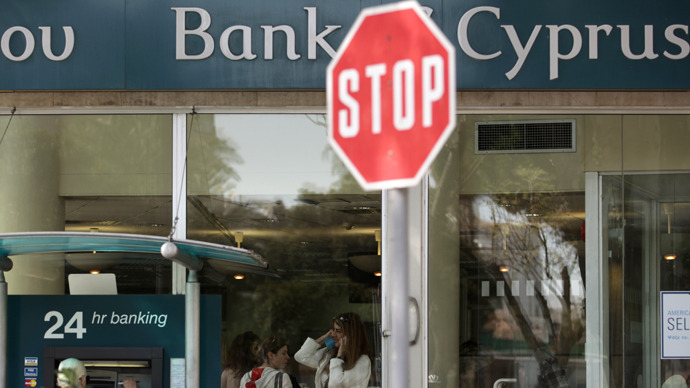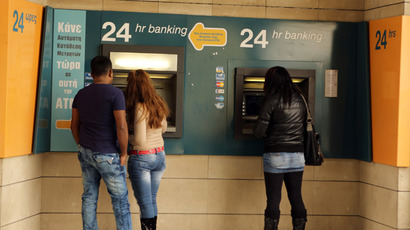Cyprus debt swells to €23bn, and scrambles for extra €6bn

Up until Thursday, Cyprus was expected to finance a €17 billion bailout, it has now jumped up to €23 billion, which means Cyprus has to come up with an extra €6 billion ($7.85 billion) to finance its bailout.
“The European Commission, in liaison with the ECB, estimates
that Cyprus's gross financing needs an amount to about EUR 23bn
over the three-year programme horizon,” says a leaked EU document, which AP first reported
Wednesday.
The news coincided with a rumour to sell €400m-worth of gold reserves, which was however denounced by the Central Bank officials. It was reported on Wednesday that Cyprus was going to sell around 10.36 tonnes of gold out of 13.9 tonnes of gold it has in reserves.
The price tag on the bailout continues to balloon: it has already increased more than 35% since the original €17 billion figure was released a month ago. The €23 billion bill is larger than the size of the Cypriot economy at €17.13 billion, comparable in size to many mid-sized American cities.
The amount Cypriot taxpayers and depositors will pay for their
bailout keeps increasing. At first, they were set to contribute €7
billion, and now this number has jumped to €13 billion.
Cypriot politicians faced a harsh backlash from islanders when they first proposed taxing uninsured depositors to help finance the bailout, but the final bailout deal included a variation of the original proposal.
The Cyprus bailout will still, in part, be financed by international creditors. ‘The Troika’ -the European Commission, the European Central Bank, and the International Monetary Fund- has promised 10 billion euros ($12.8 billion) in a rescue loan package, on the condition Cyprus cut deposits over €100,000 and close down Laiki bank.
Russia agreed to restructure a €2.5 billion loan to Cyprus, issued in 2011. On April 8 President Putin announced it would extend the loan during a news conference with German Chancellor Angela Merkel.
After a ‘debt sustainability analysis’ was conducted, it revealed Cyprus is in much deeper, irreversible debt than finance ministers first thought.
GDP is expected to slide by a minimum of 8.7% in 2013, and could contract more rapidly if the bailout payments continue to stall.














